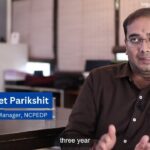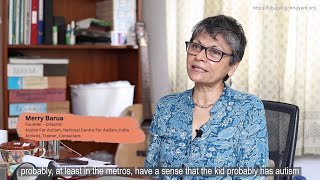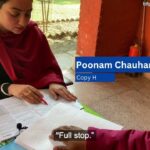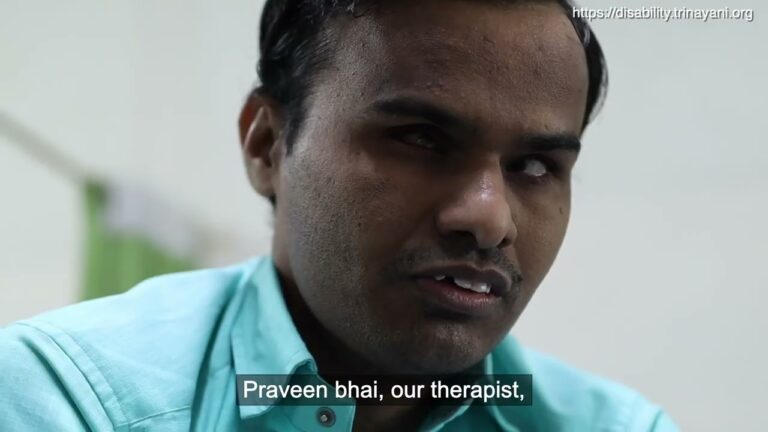Dipendra on Tech for Independence
Dipendra Manocha, a Delhi University graduate, serves as Director of the Developing Countries Programme and Lead of Training and Tech Support at the DAISY Consortium. He’s also the Co-Founder Trustee of “Saksham. Manocha is a pivotal figure in the Assistech Lab at IIT Delhi, contributing to the development of assistive technology for the blind and leads training and technical support for capacity-building programs within the Accessible Books Consortium of WIPO.
Meet Dipendra Manocha, a person living with blindness, talking about the incredible impacts of technology in today’s world. From struggling to read a simple thermometer to now having one that talks, technology has transformed lives of people with blindness and low vision and opened up endless opportunities for education, employment and social interaction. Imagine going to school with only a handful of books available in Braille, shared among an entire class – that was once the reality. But today, people with blindness and low vision have access to about 5 million books – all thanks to technology – doors are now opening where once there were only walls!
I am Dipendra Manocha, Founder Trustee, Saksham and I’ve lived a life with blindness, so I am a person with blindness myself.
During my school we just had about five books that were in accessible format in Braille with us, which had just one copy shared with the entire class.
And today I have access to almost 5 million books.
So it’s been a journey from 5 to 5 million books, as a person with blindness.
So, when we talk of any impairment or any disability, it actually causes, or it becomes a cause of functional limitation.
There are few things that I’ll not be able to do because I can’t see.
But it is there, where the technology comes in, because it is every day redefining, what I can or cannot do, even if I don’t see.
And technology is giving me back what normally the loss of sight has taken away.
For example, if I’m running high temperature, I can know what is my temperature if I have a talking thermometer with me.
So if I have that technology, I can do it but if I don’t have a talking thermometer, if I just have a normal mercury or a digital thermometer that does not talk, then I’m dependent on others and I have a functional limitation there.
Now one of the biggest change that the technology has done and it has given us back, is the capability to be able to read and write in the script that the whole world is using.
So if I have to write Hindi, I can actually, using technology, write in Devnagari script which can be read by anybody else.
So I can now have written communication with the rest of the world.
This is something that has happened just in 1990s and more popularly in the early 2000s, in a country like India.
And it is also possible to do that in all Indian languages and for that, I would say, this has started happening maybe just in 2018.
So this is one example that I’m sharing that has impact on all the aspects of our living, whether it is education, employment, or my day-to-day task.
Whether I have to do banking or book a cab or just you know, participate in the social dialogue using WhatsApp or emails or any social media, all that has become possible because this technology has now made it possible for me to have written communication with the rest of the world.
So, technology is a big game changer for us.
It is something which has opened up all the subjects.
Anybody who has any kind of ambition, whether they want to become an IAS officer or an engineer or a lawyer, it’s all possible today.
Even the fields of mathematics and accounts and science, all those fields have got opened.
We can enjoy our lives and recreational possibilities are also becoming possible.
All those things will happen only when we know that there are certain technologies that can make it happen for us, we are able to acquire it, we are able to use it, we are able to train ourselves to use these solutions and lead a very very positive and fulfilling life.
So there are technologies such as screen reading softwares on computers or smartphones that have actually enabled persons with blindness to have written communication with the rest of the world.
This has also led to opening up of several employment opportunities in the areas which had earlier not been available.
For example, they’re now getting into civil services as IAS officers.
They can actually become software engineers.
There are several companies, several people have, who are now working in these areas, in companies in India itself.
Lot of people are getting employment in Banks, as probationary officers, in clerical posts, they are also there as in the airport authority, as Law Officers, as the Welfare Officers after doing Masters in Social work.
So, people have done MBAs in Finance.
Earlier they used to be only doing MBA in Human Resource Management but now, even in subjects, even in areas like Finance, they’re actually able to not only complete their studies but find excellent job opportunities.
And what is required by employers is just to, first of all, have that mindset that it is just one another diversity, not being able to see is not such a big deal because they can provide reasonable accommodations such as just providing that screen reading software or training people on how to actually talk to people generally.
Not to be very formal.
Simple things like how to guide a person to sit on a chair or how to guide a person while walking or creating you know, tactile landmarks in their environment, so that movement becomes easier, they can move independently within the work environment, within the offices.
So these reasonable accommodations can be provided, to make life easier and to make persons with disabilities and especially persons with blindness comfortable in the work environment.
These are not some things which are very out of the way, these are very simple solutions and it’s more of an attitude than the real problem caused by disability that hampers inclusion of persons with blindness, low vision in employment.
Both IOS and Android devices use built-in software known as VoiceOver and TalkBalk, which uses text-to-speech output. Text-to-speech is a synthesized voice that communicates what is on the screen.
accessibility, assistive technology, banking careers, blindness, Braille, civil services, digital inclusion, disability awareness, education access, employment opportunities, functional limitations, independence, reasonable accommodations, screen readers, social participation, software engineering, talking thermometer, technology adoption, Visual Impairment, workplace inclusion, written communication


















